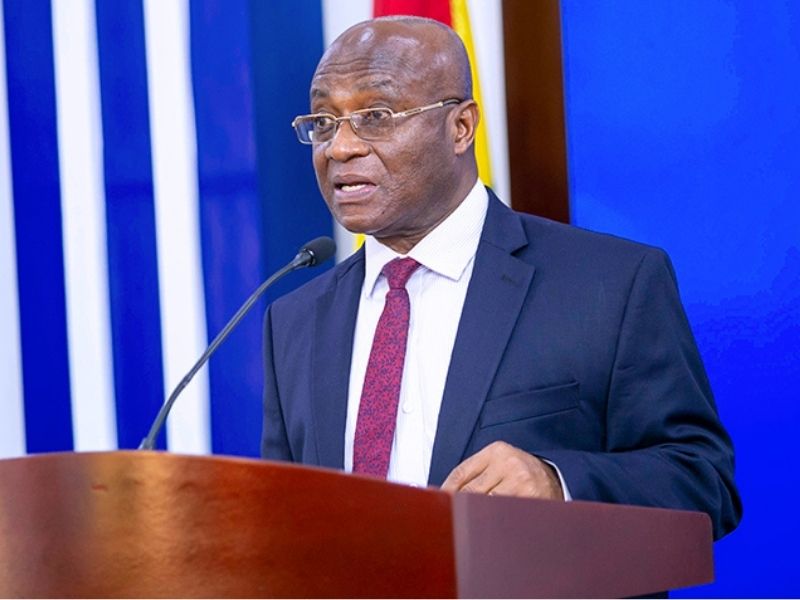
The government of the New Patriotic Party (NPP) seems not to back down on the introduction of the controversial Electronic-Levy (E-levy) in the 2022 Budget.
Providing justification for the levy, the Minister for Parliamentary Affairs (MoPA), Mr Osei Kyei-Mensah-Bonsu, said the government needed to mobilise resources for development, and one the ways to do so, was through the introduction of the E-levy.
“… We must look for ways to mobilise resources for the country to develop; we must build our roads; build educational facilities; deliver potable water, and one of the ways to do this is by the introduction of [the] E-levy.”
Mr Kyei-Mensah-Bonsu was speaking at a media engagement, organised by the Ministry of Information in Accra yesterday.
The engagement focused on the MoPA’s various working dialogues with Parliament, civil society organisations, political parties and activists, and as well as the media.
Speaking about one of its engagement with civil society organisations, the Minister, who is also the Majority Leader in Parliament, said at one of those engagements it was observed that many professional bodies and individuals, due to the nature of their work, don’t pay taxes, which leads to low levels of internal revenue mobilisation, a situation that was very worrisome.
He said it was, therefore, necessary that the government found ways to widen the tax net, in order to generate more revenue for development, hence, the introduction of the E-levy.
Notwithstanding that, the Minister indicated that the country’s level of borrowing and debt to GDP ratio was increasing by the day, so there was the need to widen the tax net to mobilise more revenue to take care of those aspects of the economy.
Furthermore, Mr Kyei-Mensah-Bonsu said that the cost of road construction in the country had escalated over the years, making it difficult for the government to construct roads.
“Over the past 20 years, the road network of this country has doubled… over just two decades from the year 2000 to 2020, the road network has increased more than hundred percent. We need to maintain them; we need to service them; we need to build new ones.”
He also indicated that the government owed road contractors huge sums of moneys, and that the revenues generated from the Road Fund and Road Toll cannot be used to settle those debts.
“Today, as we speak, government is indebted to local contractors to a tune of about 4.5 or 4.6 billion, where do we find the money to pay them? The Road Fund does not contribute much, and the Road Toll also contributes GH¢72 million a year, what is it going to do?” he queried, and said it was enough justification for the government to embark on the collection of the E-levy.
Responding to arguments raised by some sections of the public – that the E-levy constituted double taxation, the Minister said that it was not about Ghanaians paying double taxes, but it about them seeing that their monies were being put to good use.
He noted that when people see that road construction and other infrastructural developments are ongoing, they would see the importance of paying the levy.
He said it was because people usually did not see the tangible results of the taxes they pay, that was why they grumbled when paying it.
Other arguments that people raised when the E-levy came to the public domain was that the government should consider cutting down on the number of parliamentarians in order to reduce expenditure and used the remaining money for development.
The Minister, yesterday, agreed with those making such arguments, and went further to say that if care was not taking, every government would want to create new regions and constituencies for the purposes of gaining more votes without considering the fact that such additional constituencies had implications on the public purse.









